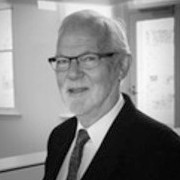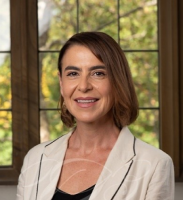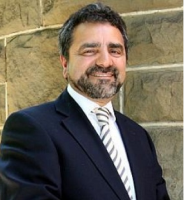The Initiative for Peacebuilding
The Initiative for Peacebuilding brings together multidisciplinary research, engagement, and education to advance peacebuilding and conflict prevention in the Indo-Pacific region.
Sustainable peace is one of the essential conditions for global security and wellbeing. One way that peace is pursued is through the prevention and transformation of violent conflicts, and the conditions that give rise to these conflicts. Another is through supporting the attitudes, institutions and structures that can sustain peaceful societies.
With deep regional expertise and capabilities which bridge research and practice, the Initiative for Peacebuilding contributes to peacebuilding and conflict prevention by:
- researching peacebuilding in innovative and regionally grounded programs
- engaging with peacebuilding practice and policy from the standpoint of a university-based initiative
- educating the current and next generation of peacebuilding practitioners and researchers
Peacebuilding Research Programs
Strengthening Diplomacy and Conflict Prevention
This research program focuses on the importance of strengthening diplomacy and aid as critical to peace and security. Even before the pandemic, peacebuilding was under-resourced, a situation which was worsened by severe underfunding of diplomacy, aid, and development. With priorities shifting to COVID-19 responses, local peacebuilders fear further reductions in financial support and attention from international, government and non-government donors. Engaging with researchers from across the humanities and social sciences enables a dynamic exploration of case studies from across the region, where partnerships already exist. Example projects relate to: the current efforts to re-vision diplomatic renewal in foreign policy in Australia; the importance of dialogue and relationship-building in relation to Northeast Asia; and professional development modules that can support enhanced policy and practice in conflict prevention.
Indo-Pacific Peacebuilding Practice Innovations
This research program focuses on innovations in peacebuilding and conflict prevention among key Indo-Pacific case studies (such as Myanmar, Bougainville, and Solomon Islands). The program seeks to examine how peacebuilding organisations, states, and non-state actors are working to adapt their efforts to today’s complex challenges. It provides opportunities for reflection and the strategic re-visioning of peacebuilding efforts, while learning from, sharing, and supporting new opportunities to advance peace. An example project involves collaboration with key First Nation mediators in Australia, and Southeast Asian and Pacific peacebuilding organisations, to examine what is working in relation to conflict transformation efforts. This is achieved through the collaborative investigation of partner experiences in Myanmar, the Philippines, Solomon Islands, Bougainville, Papua New Guinea, and Central and Northern Australia.
Keep up to date with our latest news and events
Current events
News and past events
Event recordings
Conversation Series with André de Quadros on freedom dreaming, storytelling and reconciliation
Conversation Series with Lesley Pruitt on arts and peacebuilding
Passcode to access: wZiG+4yn
Conversation Series with Tecla da Silva on women mediating peace in Timor Leste
Passcode to access: v8&@bp#s
Professor John Langmore AM

Chair of the Board, Initiative for Peacebuilding
Professor John Langmore initiated the Initiative for Peacebuilding concept. Between 1963 and 1976 he worked in Papua New Guinea as a public servant and academic where he led the preparation of the first national plan. Between 1976 and 1984 he was an economic advisor to the Australian Labor Party and proposed the negotiation of the Accord. In 1984 he was elected as the Member for Fraser in the House of Representatives and was re-elected four times. One of his achievements there was chairing the committee which planned the adoption of the first comprehensive committee system for the House of Representatives.
John retired from parliament in 1996 to become Director of the UN Secretariat Division for Social Policy and Development in New York for five years and then Representative of the International Labour Organization to the United Nations for two. He was responsible for the organisation of the 24th special session of the UN General Assembly which was the first world conference to agree on a global target for halving serious poverty. Since 2005 he has been a Professorial Fellow in the School of Social and Political Sciences in the University of Melbourne where he has initiated and coordinated graduate subjects on the UN, Social and Political Development and nuclear disarmament.
He has written, jointly written, or jointly edited six books including two reports to DFAT on conflict prevention and peacebuilding; and has published over 70 refereed journal articles and chapters in books on economic, social, environmental, and foreign policy issues including international peacebuilding and global governance.
He was one of the two founders of the Australia Institute, was National President of the UNAA for five years from 2005 and was a member of the founding committee of the International Campaign to Abolish Nuclear Weapons which was awarded the Nobel Peace Prize in 2017.
Dr Tania Miletic

Assistant Director of the Initiative for Peacebuilding, and Senior Research Fellow (School of Social and Political Sciences)
For the past 20 years Dr Tania Miletic has been engaged in policy-oriented research, peacebuilding practice, teaching post-graduate subjects in peace and conflict studies, and supporting actors engaged in peace processes in the Asia-Pacific region.
Tania is a Faculty member on the Centre for Peace and Conflict Studies Applied Conflict Transformation Studies PhD program and a former consultant to CPCS from 2006-2012. She has collaborated with Chinese academics in mainland China for over a decade in research and teaching on contemporary conflicts within China; while being a visiting researcher to the Centre for Human Rights & Conflict Resolution Programs at the Zhou En Lai School of Government, University of Nankai, Tianjin, China.
Tania has been a Sessional Academic at Victoria University teaching units on Conflict Resolution ASA5050; Peace, Conflict and Violence ASA5010 and Transnational Gender and Human Rights since 2007.
Tania first trained as a psychologist, worked with Melbourne Uni’s Centre for Global Mental Health, and still consults on trauma-informed peacebuilding and collective approaches to social healing and wellbeing. She was recently the Policy consultant to the Victorian Foundation for Survivors of Torture and the Ethnic Communities Council of Victoria. She is a member of the American Psychological Association’s Conflict and Peace Division.
Tania is a Fellow of The Australian Centre and an Associate of the Centre for Contemporary Chinese Studies at The University of Melbourne.
Professor Joseph Lo Bianco

Professor Joseph (Joe) Lo Bianco is professor emeritus in the Melbourne Graduate School of Education, University of Melbourne. He is a specialist in bilingual education, literacy studies, and conflict mitigation with four decades of work in peacebuilding efforts in various South and Southeast Asian settings, especially Sri Lank, Myanmar, South Thailand and Malaysia. Prof Lo Bianco is series editor of Springer Language Policy books and has published over 40 books and major reports and more than 150 academic papers.
Joe leads the Initiative for Peacebuilding’s research on Peacebuilding and Language, focusing on issues of justice, communication and voice.
Dr Gillian Howell

2023 Melbourne Postdoctoral Fellow, Melbourne Conservatorium of Music
Dr Gillian Howell's award-winning interdisciplinary research and creative practice advance our understanding of the contributions of music-making to post-war community wellbeing and social transformation. In her role as Dean's Research Fellow in the Faculty of Fine Arts and Music, she is leading a portfolio of research that explores the intersections of music, conflict and peace, including investigations into: the varieties of peace that music-making fosters; collective songwriting as a methodology for understanding the experiences of voice and power among war-affected adolescents in the Middle East; the musical lives of young Afghans; and the practices of musician-peacebuilders around the world.
Internationally, Gillian has conducted research in Bosnia-Herzegovina, Sri Lanka, Timor-Leste, Kosovo and North Macedonia, and was the principal investigator for the arts-based research consultancy, exploring voice and collective power among adolescents affected by conflict and violence in the Middle East, with Save the Children Middle East and Eastern Europe in 2021. In Australia she has undertaken research with First Nations communities in the Kimberley and with young people with lived experience of forced displacement and migration. Her contributions are located at the nexus of community music, peacebuilding, international development, and place-based community arts collaborations, and she is published in leading outlets across applied music and community arts, cultural policy, development studies, and peace and conflict studies. Gillian brings a unique combination of academic and professional expertise to her field, with over two decades of professional appointments as a music facilitator, creative director, and community engagement consultant with Australia's leading orchestras, contemporary art music organisations, and social music projects. Her awards and recognitions include the Australian Art Music Award for Excellence in a Regional Area (with Tura New Music) in 2020, the Callaway Doctoral Award in 2019, and multiple arts development grants from Creative Victoria and City of Melbourne. She is the Co-Chair of the International Society for Music Education's Community Music Activity Commission, and has a growing profile as a public speaker, with invited keynote presentations in China, Colombia, Australia, and Norway.
Gillian will lead the Initiative for Peacebuilding on Arts and Peacebuilding.
-
Board members
- Associate Professor Jennifer Balint, Head of School, Social and Political Sciences
- Professor Erika Feller, Professorial Fellow, Melbourne School of Government
- Dr Emma Leslie AM, Executive Director, Centre for Peace and Conflict Studies (Cambodia)
- Professor Adrian Little, Pro Vice Chancellor (International) and Professor of Political Theory
- John McCarthy AO, former senior Australian diplomat, analyst, and writer
- Professor Lesley Stirling, Dean, Faculty of Arts
- Associate Professor Tilman Ruff AO, Nossal Institute for Global Health
- Father Daniel Madigan SJ, Newman College, The University of Melbourne
-
Research Affiliates
- Professor Derek McDougall, Professorial Fellow, School of Social and Political Sciences
- Dr Carla Winston, Lecturer in International Relations, School of Social and Political Sciences
- Dr Siad Darwish, Environmental Peacebuilding and Gender Advisor
- Dr Dolly Kikon, Collaborator on Food Systems, Conflict and Peacebuilding
- Professor Sanjay Barbora, Tata Institute of Social Sciences
- Dr Rachael Diprose, Senior Lecturer in Indonesian Studies, School of Social and Political Sciences
- Dr Anne Decobert, Lecturer in Development Studies, School of Social and Political Sciences
- Dr Lesley Pruitt, Senior Lecturer in Development Studies, School of Social and Political Sciences
- Dr Anouk Ride, Independent Researcher, Solomon Islands
- Denise Nichols, Practitioner Affiliate
- Mr Soth Plai Ngarm, Research Affiliate
- Dr Gabrielle Grant, Research Affiliate
- Dr Nerkez Opacin, Teaching Associate, School of Social and Political Sciences
- Dr Ali Albakaa, Research Affiliate
- Mr Masoom Mohammad Stanekzai, Research Affiliate
- Dr Michael Main, Research Affiliate, College of Asia and the Pacific, The Australian National University
- Dr Dan Evans, Research Affiliate, Senior Policy Analyst at the Asia-Pacific Development, Diplomacy and Defence Dialogue
-
PhD Candidates
- Jacob Berah, who is undertaking research into UN Special Political Missions and the politics of peacebuilding
- Sophia Htwe, whose research aims to develop a better understanding of the role of Myanmar’s civil society organisations in peacebuilding in the Rohingya conflict
- David Lozada is researching the social conflicts within and between social actors who mobilised against president Duterte’s ‘war on drugs’
- Syed Ali Akash, whose central research question examines the complementarity and incongruity between state-led and locally-driven approaches to peacebuilding
Reports
The Australia Peacebuilding Network, 2024, Peacebuilding in Australian Foreign Policy: a Summary of Views and Conclusions from the Australia Peacebuilding Network Roundtable.
John Langmore, Tania Miletic, Aran Martin, and Bob Breen, 2020, Security Through Sustainable Peace: Australian International Conflict Prevention and Peacebuilding, Melbourne School of Government and School of Social and Political Sciences, University of Melbourne and Department of Foreign Affairs and Trade.
John Langmore, Tania Miletic, Aran Martin, and Nathan Shea, 2017, State Support for Peace Processes: A Multi-Country Review, Published by Department of Foreign Affairs and Trade.
Contemporary Commentary
Langmore, John, 2024, 'The Underfunding of Australian Diplomacy Continues', Australian Outlook.
Langmore, John, 2023, 'A Breakthrough for Justice and Peace', Pursuit.
Langmore, John 2022, 'Peacebuilding – It’s Time to End Australia’s Neglect', Australian Outlook.
Miletic, Tania and Anouk Ride, 2022, 'Tensions are high between China and Australia over Solomon Islands, but it’s in everyone’s interests to simmer down', The Guardian.
Ride, Anouk and Tania Miletic, 2022, 'Stepping carefully amid conflict in the Pacific', Pursuit.
Feller, Erika, 2022, 'Social Justice – How and for Whom?', Australian Outlook.
Barbora, Sanjay, 2022, 'AUKUS an unwelcome guest at the table of nuclear disarmament', Pearls and Irritations, 16 January 2022.
McDougall, Derek, 2022, An Authoritarian Turn in the United States: Implications for Australia? Australian Outlook (Australian Institute of International Affairs), 28 January 2022, An Authoritarian Turn in the United States: Implications for Australia? - AIIA - Australian Institute of International Affairs.
John Langmore and Tania Miletic, 2021, Submission to the Senate Standing Committee on Foreign Affairs, Defence and Trade, Inquiry into Funding for Public Research into Foreign Policy Issues, March.
Tania Miletic and John Langmore, 2020, ‘Australian Threadbare Diplomacy in Conflict,’ Australian Outlook, 26 November.
Miletic, Tania. 2018, Diaspora and Peacebuilding. Prepared for Diaspora Learning Network and Diaspora Action Australia. Department of Foreign Affairs and Trade.
Miletic, Tania. 2018, Concept Note: Diaspora Peacebuilding and Reconciliation. Prepared for Diaspora Learning Network’s Seminar #1, DAA and DFAT.
Miletic, Tania. 2016, ‘Cambodia’s peace 25 years on’, Australian Outlook. Australian Institute of International Affairs, 26 October.
Edited Collections
McDougall, Derek and Chauvel Richard (guest editors). 2021 Small Wars & Insurgencies, 32, no. 6.
Journal Articles
Darwish, Siad and Tuenpakdee, Naruemol, 2023, 'The State of Civic Peacebuilding in South and Southeast Asia', The Asia Foundation.
Feller, Erika and Langmore, John, 2022. 'Implications of the UN Common Agenda for Australia: Renewing Multilateralism', Australian Journal of International Affairs 77 (1), 2022, pp 1–11.
McDougall, Derek, 2021. 'Australia’s humanitarian response to disasters in the South Pacific. Asian Journal of Comparative Politics', Online First, 1–19.
McDougall, Derek, 2021. 'Concerns for the neighbours (and some others): international involvement in the conflicts in the Southern Philippines and West Papua' Small Wars and Insurgencies, First Published 26 July.
Chauvel, Richard & McDougall, Derek, 2021, ‘Introduction: Maritime Southeast Asia’s encounter with Westphalianism’, Small Wars & Insurgencies, pp. 1–12.
McDougall, Derek (2021), 'Review of "The frontlines of peace: an insider’s guide to changing the world"', Peacebuilding, DOI: 10.1080/21647259.2021.1999167.
Martin, A., Nathan S., and J. Langmore, 2017, ‘International mediation and Australian Foreign Policy: building institutional capacity to respond to overseas conflict’, Australian Journal of International Affairs 71 (1), 2017, 88–104.
Langmore, John and Jeremy Farrall, 2016, ‘Can Elected Members Make a Difference in the UN Security Council? Australia’s Experience in 2013-2014’, Global Governance, 22, 1, Jan–March, pp 59–77.
Langmore, John and Ramesh Thakur, 2016, ‘The Elected and Neglected Security Council Members’, The Washington Quarterly, 39:2,99-114, DOI: 10.1080/0163660X.2016.1204412.
Langmore, John, 2013, ‘Australia’s Campaign for Security Council Membership’, 2013, Australian Journal of Political Science, March, Vol. 48, No. 1, pp 101–111.
Langmore, John and Shaun Fitzgerald, 2012, ‘Strengthening Global Economic Governance’, in Kate Macdonald, Shelley Marshall and Sanjay Pinto (Eds.), New Visions for Market Governance: Crisis and Renewal, Routledge, New York, pp 94–106.
McLachlan-Bent, Ashley and John Langmore, 2011, ‘A Crime against Humanity? Implications and Prospects of the Responsibility to Protect in the Wake of Cyclone Nargis’, Global Responsibility to Protect, Vol 3, No. 1, pp 37–60.
Langmore, John and Jan Egeland, 2011, ‘Learning from Norway: Independent Middle-Power Foreign Policy’, Griffith Review 32, May, pp 164–179.
Book Chapters
McDougall, Derek 2021. International Relations, in Understanding Contemporary Asia Pacific, 2nd ed. Katherine Palmer Kaup, Lynne Rienner Publishers, Boulder, Colorado, pp. 177–234.
McDougall, Derek 2021. Australia and the South Pacific Islands in Humanitarian Assistance and Disaster Relief, in Humanitarianism in Asia-Pacific: Engaging the Debate in Policy and Practice, eds Alistair Cook and Lina Gong, Springer Briefs in Political Science, Springer Nature, Singapore, pp. 41–45.
Contacts
Professor John Langmore
Chair of the Board, Initiative for Peacebuilding
T: +61 419 897 489, E: langmore@unimelb.edu.au
Dr Tania Miletic
Assistant Director, Initiative for Peacebuilding
T: +61 437 272 287, E: tmiletic@unimelb.edu.au
Tess Smurthwaite
Coordinator, Initiative for Peacebuilding
E: smurthwaite.t@unimelb.edu.au
Mailing list
Subscribe to the quarterly newsletter